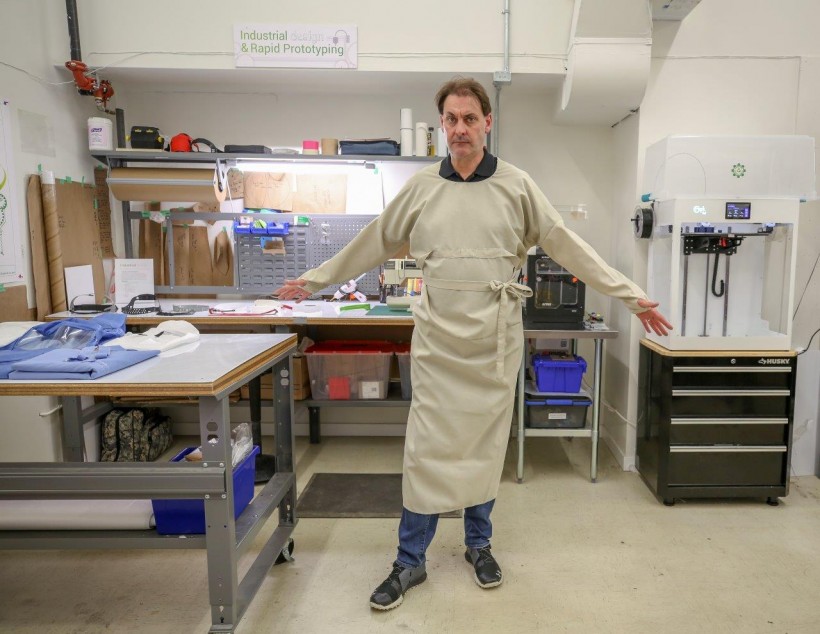Five months after COVID-19 sparked a medical manufacturing collaboration between companies, government and academia, Enginuity’s Alastair Trower sees an opportunity for Canada to permanently strengthen its medical supply chains.
In March, as governments began struggling to source face masks, medical gowns and other supplies, the Atlantic Canada Opportunities Agency organized a phone call with local industry leaders, during which it urged the creation of a coalition to manufacture badly needed medical supplies.
Halifax engineering firm Enginuity went on to become a pillar of the effort, helping to coordinate between members of what business development head Trower calls the “skunkworks team” – a reference to Lockheed Martin’s storied fighter jet division. Early in the pandemic, the team was meeting daily; now, it meets once a week.
“There is still very active interest in making sure we learn from the mistakes of the pre-pandemic supply chains,” said Trower in an interview. “Are there ways of shortening supply chains? Are there ways of guaranteeing supply? What are the local manufacturing options for PPE and is there a desire to step that up?”
A bevvy of medical products are still being manufactured by the skunkworks companies, including masks, face shields and hand sanitizer. But Trower said their future depends on how Canada chooses to rebuild its supply chains in a post-COVID world.
At the onset of the pandemic, medical supply chains were heavily globalized and relied on a just-in-time production model that often treated stockpiles as logistical headaches and sources of economic inefficiency.
BioNova Names BIC Semi-Finalists
The global spike in demand for personal protective equipment in the spring, along with coronavirus-related manufacturing disruptions, meant that primary supply chains could not deliver goods in the quantities that Canada needed. “Tier 2” backup supply chains likewise started to buckle under the pressure of COVID-19.
“I think everybody got pretty shocked when things started to choke,” said Trower. “When a Tier 1 supply chain can’t produce, and you start going to Tier 2 suppliers and they’re struggling, and then you start seeing raw materials drying up ... everybody got a little bit concerned.”
The skunkworks group was Atlantic Canada’s solution. Trower said the shorter supply chains offered by local manufacturers offer a path to building lasting resilience against future disruptions.
He added that he foresees the group continuing its activities for as long as there is demand for their products.
“I think if the buying behavior stays the same as it was pre-pandemic, most of it will probably fizzle out,” he said. “Where there is an opportunity to change behavior, is for example, can we use this as an opportunity to move away from disposable to reusable? Can we make that reusable product domestically at a competitive price? If the answers to both those questions are yes, I think we’ll see permanent behavior change and in-country manufacturing.”
One of the skunkworks members is currently preparing to launch a reusable medical gown good for about 75 uses, compared to conventional, disposable gowns that can cost as much as seven or eight dollars apiece. The new gown’s high-tech fabric is designed and manufactured at a mill in Moncton.
Regulatory hurdles have delayed the approval process, but Trower said the unnamed manufacturer hopes to bring the gowns to market by the end of September.
“The learning for this, from my perspective, has been the incredible amount of collaboration that’s gone on,” he said. “The amount of work that’s gone on behind the scenes to make sure that, particularly the Nova Scotia Health Authority, have gotten the support they need from industry -- that’s been very inspiring.”










